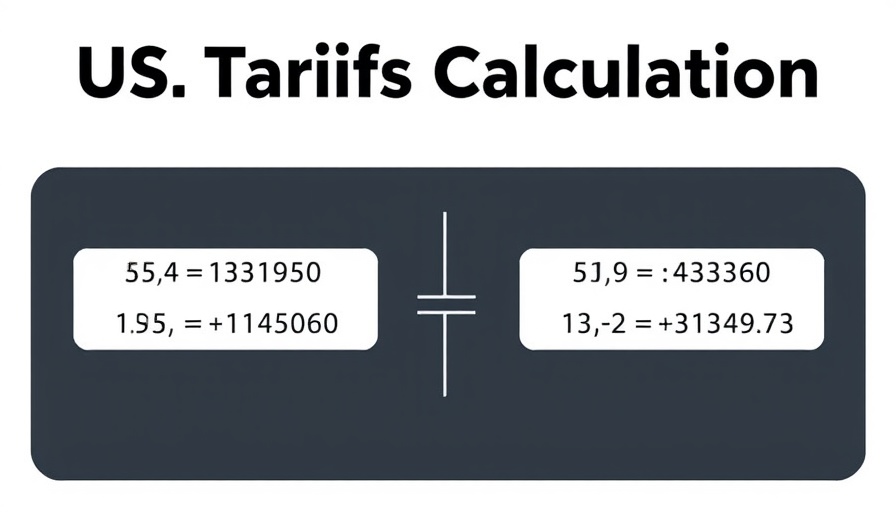
Understanding Tariff Formulas: What's at Stake?
The recent revelations about President Trump's tariff formula have economists perplexed, as they argue against the inflated rates produced by the flawed calculations. This intricate formula, which bases tariff rates on the U.S. trade deficit with individual countries, fails to account for critical economic metrics, potentially costing taxpayers significantly.
The Miscalculations Behind Trump's Tariff Rates
According to senior fellows Kevin Corinth and Stan Veuger from the American Enterprise Institute, the core flaw lies in the assumed elasticity of import prices with respect to tariffs. The Trump administration's calculations use a low elasticity of around 0.25, whereas the economists argue it should be nearer to 1.0. This discrepancy could lead to tariff rates being much higher than they need to be, resulting in a negative impact on both consumers and small businesses.
Inflated Tariff Rates: A Closer Look
For example, the tariffs applied to various countries based on this flawed formula range from 10% to a staggering 50%. If corrections were made using the appropriate elasticity value, no country's tariff would exceed 14%, significantly lowering the financial burden on consumers who ultimately bear these costs. The revised rate for Lesotho, for instance, would drop from 50% to just 13.2% by using the correct assumptions.
What's Next for Taxpayers?
This tariff formula affects not just international trade but directly impacts American taxpayers. As consumers face higher prices due to inflated tariffs, it becomes crucial for taxpayers to seek effective tax planning strategies. Understanding deductions and potential savings can mitigate the financial strain that tariffs introduce. Whether you're a small business owner or an individual taxpayer, savvy strategic tax deductions may provide relief.
Taking Action: Optimize Your Tax Situation
Understanding these economic implications is vital for tax planning. As tariffs may influence prices and hence your financial health, exploring lower tax rates, deductions, and strategic tax planning can help alleviate some risks associated with these policies.
The recent insights from economists highlight the crucial need for transparent and accurate fiscal policies. Empower yourself with knowledge about effective tax deductions to navigate the complexities of these changes. In the face of tariffs, an informed approach to your taxes could lead to significant financial benefits.
 Add Row
Add Row  Add
Add 




 Add Row
Add Row  Add
Add 

Write A Comment